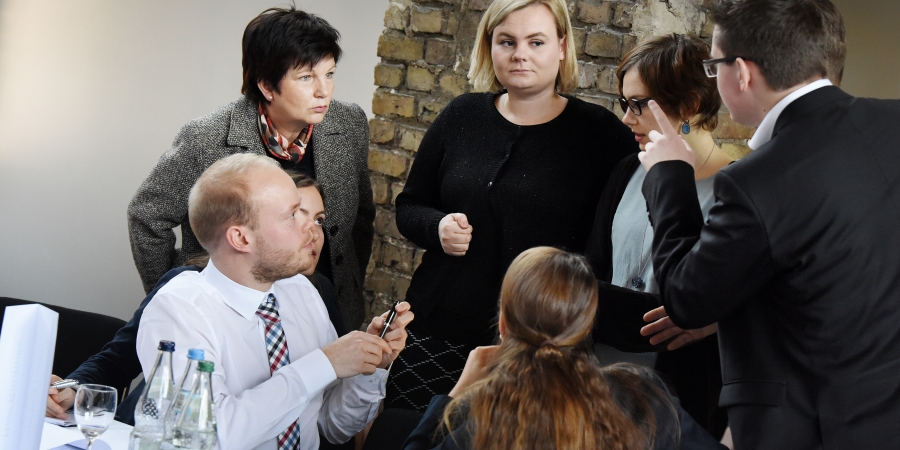Participants of the "7th Academy for Energy & Acceptance" simulate a stakeholder discussion on February 28, 2019.
In view of the increasing impact of the energy transition on every individual, justice in costs and benefits, individual opportunities for participation, and a political voice are more important than ever if a socially sustainable energy transition is to be pursued. This is also the context of the “social sustainability barometer” by dynamis, the second edition of which will be presented shortly. The question is which factors should be taken into account, especially if the general support of the “join effort” partly contradicts one's willingness to cooperate or demands on the "others?”
We take up this question on February 28 in Berlin:
The opening Prof. Dr. Ortwin Renn (IASS Potsdam/dynamis) gives insights into the research on the social dimension of the energy transition and mentions the current data. Thereafter young talents from the whole federal territory investigate how to translate the results into practice: in a simulated stakeholder – dialogue they take the roles of the energy sector environmental and consumer associations and discuss diverse compromises under expert moderation.
They were prepared by intensive discussions with experts from the Federation of German Consumer Organizations (“Verbraucherzentrale Bundesverband”), the German Federal Agency for the Environment and Nature Protection (“Bund für Umwelt – und Naturschutz Deutschland”), the Power Station of Electricity in Schönau (“Elektrizitätswerke Schönau”) and the energy provider “Innogy” within the framework of the “7th Academy for energy and Acceptance” organized by the Wittenberg Center for Global Ethics (WCGE) with funding from the Innogy foundation for energy and society.

